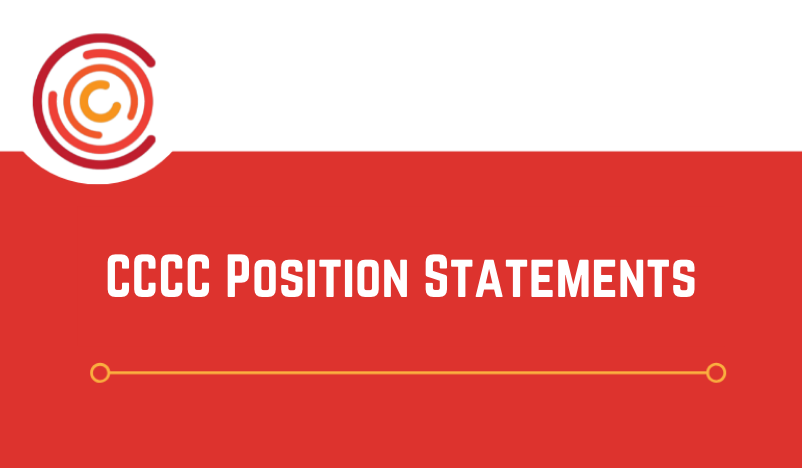The Conference on College Composition and Communication (CCCC) has released new or recently revised Position Statements. CCCC Position Statements are statements on educational issues approved by the CCCC Executive Committee. Learn more about the guidelines around the CCCC Position Statements.
The six most recent Position Statements are:
1. Student Veterans in the College Composition Classroom: Realizing Their Strengths and Assessing Their Needs (March 2015, references and further reading updated November 2022)
This organizational structure is meant to present a deliberate move away from deficit-model thinking about military veterans—that veterans are damaged or unprepared or otherwise problematic—to representing military service members as considerable assets and sources of strength, vision, and leadership for our universities, colleges, and our society at large.
2. Position Statement on Citation Justice in Rhetoric, Composition, and Writing Studies (November 2022)
This statement is a response to several recent and historical exigencies that have demonstrated a need for a broader conversation about citation justice in rhetoric, composition, and writing studies.
3. Statement on Language, Power, and Action (November 2022)
This statement is informed by the assumption that language, power, and action are interconnected. This statement also serves not only as an explanation of principles but also as a heuristic for more justice-centered practices.
4. Statement on Support for Gender Diversity/Trans, Two-Spirit, and Nonbinary Students, Staff, and Faculty (February 2023)
In response to the recent legislative onslaught targeting LGBTQIA+ communities, and to federal inaction, the CCCC Executive Council convened an LGBTQIA+ Task Force focusing on methods for supporting LGBTQIA+ people in our professional spaces.
5. Statement on Editorial Ethics (April 2023)
Editorial work—including every stage in the process by which scholarly work is reviewed and guided toward publication in academic journals and edited collections—is an important area of research, and CCCC recognizes that it is vital to maintain only the highest standards of ethical behavior, integrity, and professionalism in our academic publications.
6. Statement of Professional Guidance for New Faculty Members (1987, Revised November 2015, Revised November 2022)
The purpose of this statement is to help you as a faculty member—adjunct, contingent, contracted, tenure-track—who is new to an institution be successful in a new position.
Interested in learning more about the process by which CCCC Position Statements are created? Read more here.
It is the policy of NCTE in all publications, including the Literacy & NCTE blog, to provide a forum for the open discussion of ideas concerning the content and the teaching of English and the language arts. Publicity accorded to any particular point of view does not imply endorsement by the Executive Committee, the Board of Directors, the staff, or the membership at large, except in announcements of policy, where such endorsement is clearly specified.

